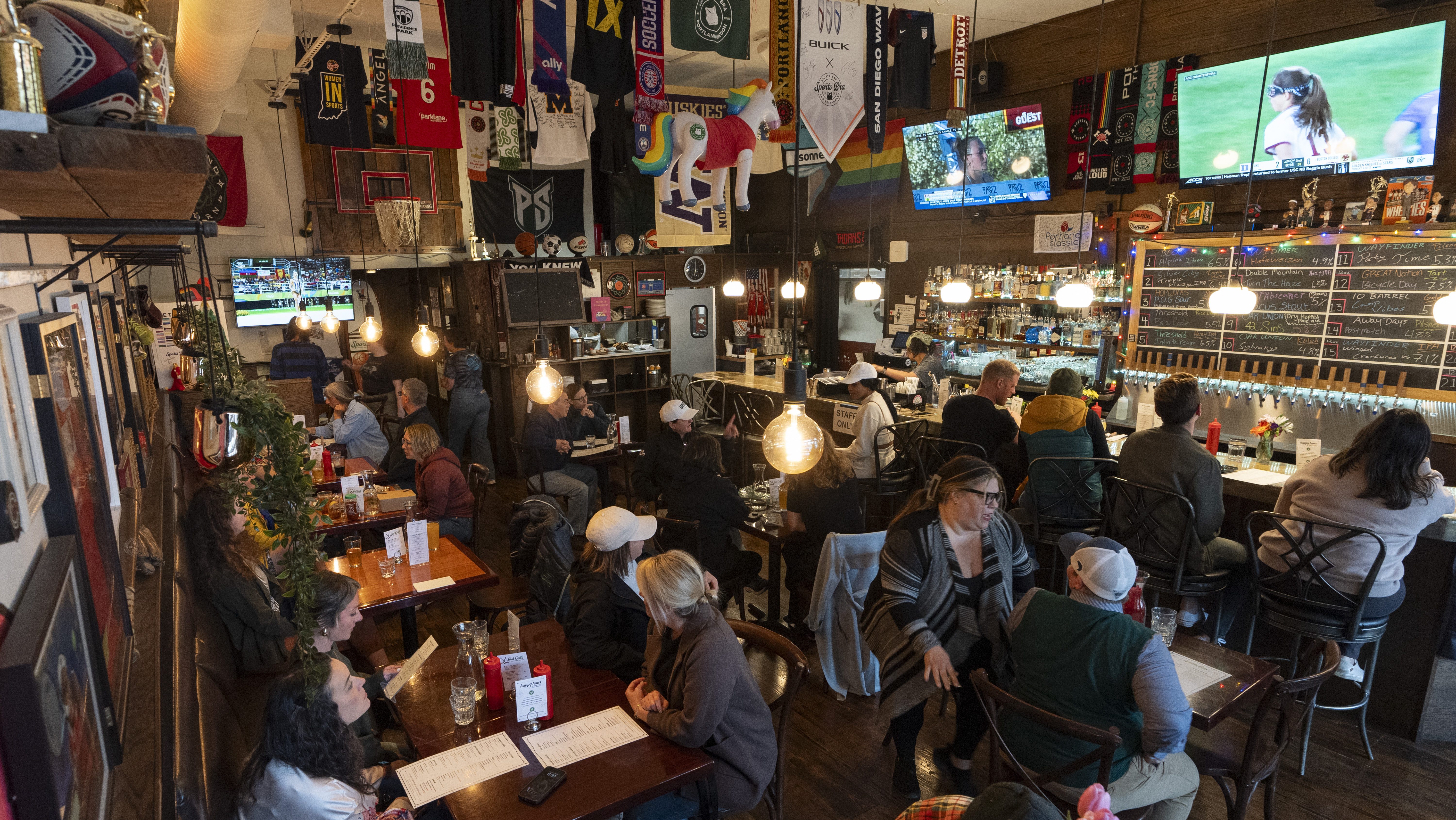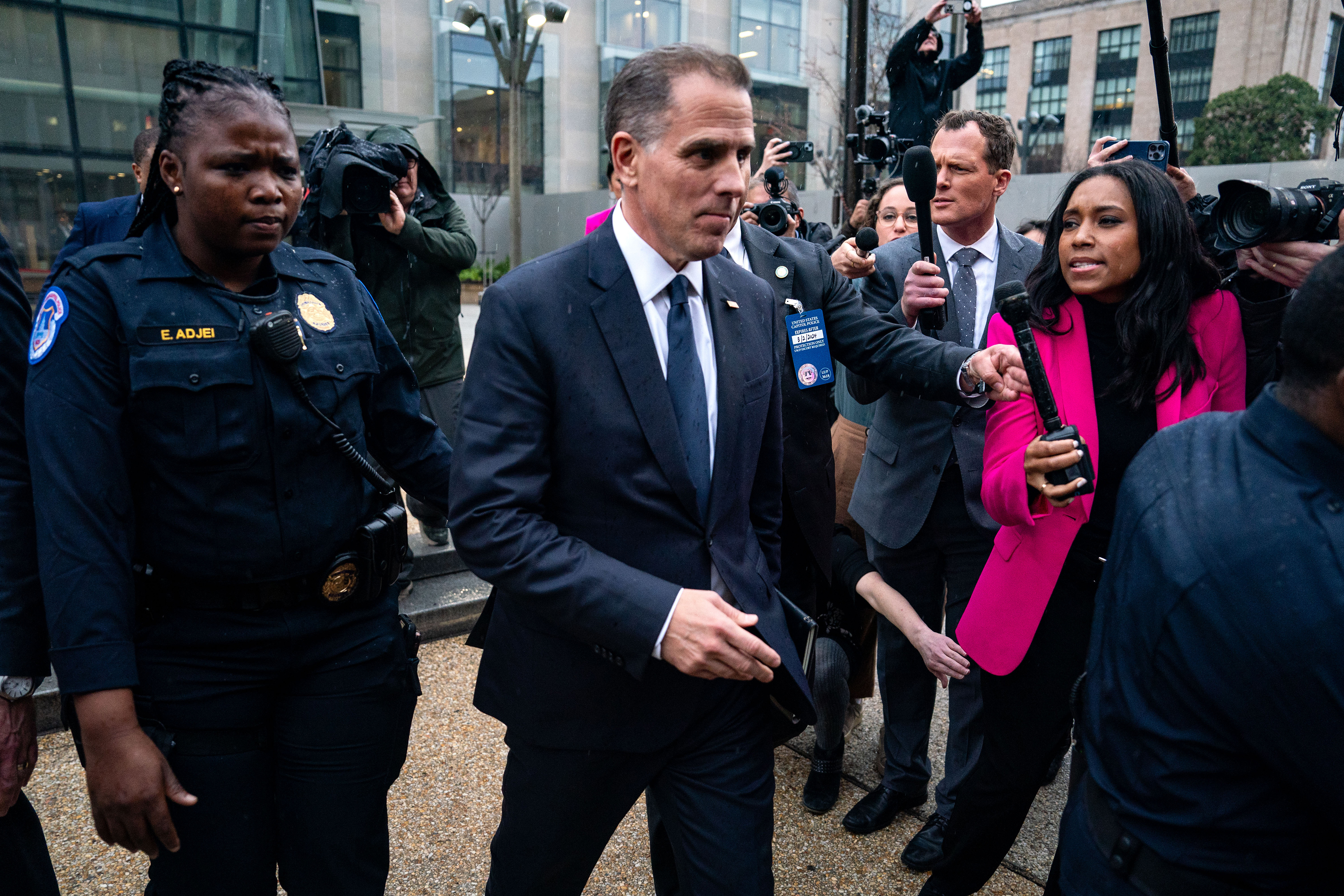Facing a wave of random street and subway violence, a deepening migrant crisis and the fatal shooting last month of an officer during a routine traffic stop, New York City Police Commissioner Edward Caban insists the country's largest city remains safe.
"It's the perception versus reality," Caban said Monday in a wide-ranging interview as he marks nearly nine months leading the 33,000-member New York Police Department.
"You know, we could tell people all the time that I'm going to show more numbers. Yes, we are heading in the right direction for crime," Caban added. "But to someone's reality, someone who has been a victim of a crime, it tells a different story. And that's one of the things we're struggling with right now."
Read more on this story at NBCNews.com and watch "NBC Nightly News with Lester Holt" tonight at 6:30 p.m. ET/5:30 p.m. CT.
Get a weekly recap of the latest San Francisco Bay Area housing news. Sign up for NBC Bay Area’s Housing Deconstructed newsletter.
The latest data compiled by the police department indicates that crime was down overall in the first quarter of 2024 and that it dropped last month from the year before: Murders were down 19%, burglaries fell 17%, and grand larcenies dipped 7%.
Shooting incidents were down almost 26% in March from the year before, amounting to 29 fewer shooting victims and more arrests for illegal possession of a firearm, police said.
But some types of crime increased last month over March 2023, including rape, with 16 more incidents reported this year, bringing the total to 148, as well as felony assaults, which increased by 118, to 2,278.
U.S. & World
The police department also reported less overall crime within the transit system, saying the initiative of deploying 800 officers — known as "Operation Fare Play" — helped with enforcing fare evasion. Also last month, Gov. Kathy Hochul directed National Guard members into the city's sprawling underground network, with bag checks being conducted in some of the busiest subway stations.
A series of well-publicized attacks, including the slashing of a subway conductor in Brooklyn and the kicking of a 64-year-old rider onto the tracks at busy Penn Station in Manhattan, prompted the move.
"Let me be very, very clear," Hochul said at a news conference. "These brazen, heinous attacks on our subway system will not be tolerated."
Mayor Eric Adams has also said the subway system, which carries 4 million paid riders daily, is safe but suffering from a negative perception.
"Public safety is the actual safety, and it's how people are feeling,” Adams said last month. "Stats don't matter if people don't believe they are in a safe environment."
Caban said the influx of migrants into New York, coupled with intense coverage when a crime is committed by someone who is not legally supposed to be in the country, can stoke fears. In January, reported migrants who were recorded on video assaulting two police officers in Times Square led to calls for their deportation as Hochul and other leaders criticized how they were arraigned and released on their own recognizance.
"I'm not satisfied with that at all," she said at the time. "These are law enforcement officers who should never, under any circumstances, be subjected to physical assault. It's wrong on all accounts, and I'm looking to judges and prosecutors to do the right thing."
The issue has become fiercely political during this election season and a focus of presumptive Republican nominee Donald Trump's presidential campaign, in which he has sought to connect migrants with a surge in criminal activity. Expert analysis and available data from major-city police departments show that despite several high-profile incidents, there is no evidence of a migrant-driven crime wave.
"The NYPD understands that people come to New York City to build a better life for themselves and the families," Caban said, adding that many of his police force's rank-and-file members were born in other countries.
"They, themselves, are the American dream. But having said that, if you commit a crime in New York City, if you break the law, we will hold you accountable," he said. "Right now, we do have some pockets of migrant crime."
Caban, a 30-year veteran officer, said he is worried about the larger effect of defendants' being caught and then released after having benefited from state bail reform laws.
He said he blames an underlying problem for inflating anxiety in New York and not migrants as a whole.
"We talk about, whatever you want to call it, 'catch and release.' We lock someone up. District attorney puts bail on them. The judges let them go to walk our streets again," he said, adding, "It's a broken system."
"We lock people up over and over again. We're seeing the same people," Caban said. "You know, when is enough going to be enough? You know, cops are doing an amazing job with all these arrests — a 26-year high. And for what?"
Caban, a Bronx native of Puerto Rican heritage who became the first Latino to lead the New York Police Department last summer, said he remains proud of his police force and its diversity. But the death of Officer Jonathan Diller, who was killed last month by an armed person during a traffic stop in Queens, became a grim reminder of what can happen to any of them in an instant.
"Whether it's a family of blood or a family of blue, it hurts to the core," he said.
Still, Caban insisted the situation is not representative of the dangers that people in New York face on a regular basis.
"We have one bad incident, it's magnified all over social media, and it sets us all back," Caban said. "Everybody thinks there's lawlessness in our city, and it's not. We're the safest big city in America."
This article first appeared on NBCNews.com. Read more from NBC News:



